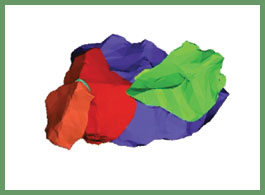■Kazuki YAMAHARA,Kouichi KONNO,Fumito CHIBA, Maasa SATOH,
A Method of Detecting Adjacent Pieces of Restoring Refitted
Flakes with Extracting Peeling Surfaces,
(2011).
Abstract:
The refitted flakes of the stone tools are one of the important material in archeology to
investigate the life of people of paleolithic and Jomon Period. Various information such
as the stone tool producer production intention, action, technologies, and ranges of life
can be obtained by connecting flakes exhausted by the process of generating the stone
tool, and reproducing the generation process of the stone tool. Then, many researchers try
to find the adjacent stone tool that belongs to the same core. Since restoration of refitted
flakes is manual work, it is hard and time-consuming. In addition, the restoration might
damage the stone tools, which places a large burden on the restoration staffs. This paper
proposes the method to detect the contiguity of stone tools by using the polygons
created from the measured point clouds on the faces of the stone tool flakes for the
restoration of refitted flakes. In our method, finding the adjacent stone tools is based on
the posture of the peeling faces. Therefore, to extract peeling faces, edges between
peeling faces are detected with the curvature. Because the peeling faces are smooth
shape and edges between peeling faces are sharp shape. With our method, the contiguity
between stone tools can be detected.
